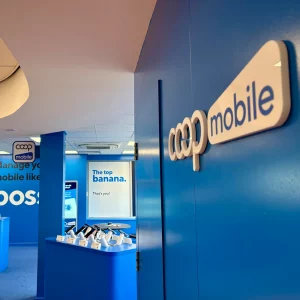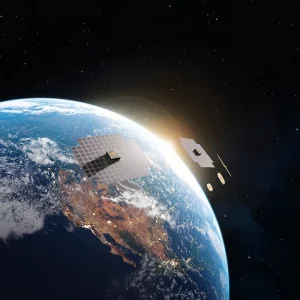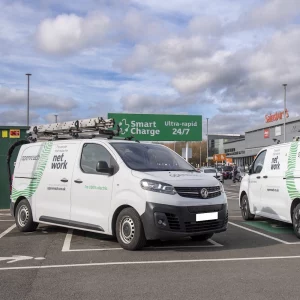Sponsored Links
UPD Asia Pacific Regional Internet Registry Issues Alert as IPv4 Addresses Run Dry
Posted: 15th Apr, 2011 By: MarkJ
 The Asia Pacific Network Information Centre (APNIC), which handles the distribution and registering of numeric internet addresses for almost the whole of Asia, looks set to become the first Regional Internet Registry (RIR) to run out of IPv4 addresses as supplies reach a critical level.
The Asia Pacific Network Information Centre (APNIC), which handles the distribution and registering of numeric internet addresses for almost the whole of Asia, looks set to become the first Regional Internet Registry (RIR) to run out of IPv4 addresses as supplies reach a critical level.An IPv4 address is assigned to your computer each time you go online (e.g. 85.23.56.198). They act like a unique online identifier, made up of four number groupings, and allow you to communicate with other computers around the world; not unlike a phone number.
Sadly IPv4 addresses only provide a maximum of approximately 4.3 Billion addresses and without spare addresses an ISP would be unable to add any new connections. As a result Internet Protocol version 6 ( IPv6 ) was invented, which are longer (128bits), more secure, written in hexadecimal and separated by colons (e.g. 2ffe:1800:3525:3:200:f8ff:fe21:67cf); we'll come back to the problems with this later.
The Internet Assigned Numbers Authority (IANA) allocated its remaining blocks of IPv4 internet addresses to the worlds five RIR's in February 2011. At the time many predicted that the supplies could be exhausted far sooner than initially expected, possibly by the end of this summer.
Related NewsJust 10 weeks on and APNIC is already in trouble. The registry has today moved into "Stage Three of IPv4 exhaustion in the Asia Pacific" region, which means that they have just one /8 block of ipv4 addresses left.
1st Feb 2011 - D-Day - Last Remaining Normal Ipv4 Internet Address Blocks Finally Allocated
3rd Feb 2011 - UK ISPs Respond to Ipv4 Internet Address Depletion and Ipv6 Concerns

As a result "normal" IPv4 allocations have been stopped and, to extend the life of their remaining addresses, each organization can now only receive one block of the minimum allocation size (this is so tiny as to be practically useless to most medium sized or larger ISPs).
APNIC Statement
APNIC's objective during Stage Three is to provide IPv4 address space for new entrants to the market and for those deploying IPv6. From now, all new and existing APNIC account holders will be entitled to receive a maximum allocation of a /22 from the Final /8 address space.
APNIC's objective during Stage Three is to provide IPv4 address space for new entrants to the market and for those deploying IPv6. From now, all new and existing APNIC account holders will be entitled to receive a maximum allocation of a /22 from the Final /8 address space.
Adrian Kennard, Director of UK ISP Andrews & Arnold ( AAISP ), commented:
"This is pretty major. There are several steps to running out of IPv4 with the first being IANA in February. The next step is RIRs running out which has now started, and then after that LIRs (ISPs) running out.
APNIC running out means that no ISP can now get any normal allocations in the APNIC region. It means that ISPs will be forced to do nasty things with IPv4 NAT and make use of IPv6. We can expect the use of IPv6 only web sites and other services aimed initially at local markets where IPv6 users can access them.
When there are any significant places on the Internet that are IPv6 only (and not just www.loopsofzen.co.uk) we can finally address the head in the sand ISPs that say "We have plenty of IPv4s left". People like Virgin Media who seem to think it is not important for their customers to access IPv6 endpoints in the Internet will have to wake up!
It matters not how many of those old legacy IPv4 addresses you have if there are parts of the Internet you cannot reach using IPv4!"
"This is pretty major. There are several steps to running out of IPv4 with the first being IANA in February. The next step is RIRs running out which has now started, and then after that LIRs (ISPs) running out.
APNIC running out means that no ISP can now get any normal allocations in the APNIC region. It means that ISPs will be forced to do nasty things with IPv4 NAT and make use of IPv6. We can expect the use of IPv6 only web sites and other services aimed initially at local markets where IPv6 users can access them.
When there are any significant places on the Internet that are IPv6 only (and not just www.loopsofzen.co.uk) we can finally address the head in the sand ISPs that say "We have plenty of IPv4s left". People like Virgin Media who seem to think it is not important for their customers to access IPv6 endpoints in the Internet will have to wake up!
It matters not how many of those old legacy IPv4 addresses you have if there are parts of the Internet you cannot reach using IPv4!"
Unfortunately it's not as simple as merely swapping from an IPv4 to IPv6 platform because the two protocols are not directly compatible. Most consumers also own broadband routers that still only understand IPv4 addresses. In fact a lot of internet capable devices and software, from modern mobile phones to older laptops and networking cards, suffer from the same problem.
As a result of the industry's failure to get to grips with IPv6 back in the late 1990's, most ISPs will now need to run a dual-stacked setup that allows both protocols to communicate with one another. This is costly and can still cause problems when you have no IPv4 addresses spare, which would be needed to help translate IPv6 requests from new users.
The simple fact is that, once there are no IPv4's left, adding new connections without compromising performance and possibly even security (e.g. IPv4 address sharing between users) only really becomes possible with IPv6. But right now a significant amount of websites, servers and other kit still isn't ready; including our own web host (not for lack of complaining).
Ultimately no competent ISP would want to put itself into in a position where the addition of new customers is not possible and half-way measures like IPv4 address sharing may, in extreme cases, become necessary. Many of the big ISPs still have plenty of IPv4 addresses floating around, although those could be gone after a couple of years.
Consumers don't need to worry just yet; most ISPs will tackle the problem away from your gaze, although that doesn't mean to say that problems won't still surface when true IPv4 shortages begin to bite. IPv6 is now effectively mandatory for building any new internet networks and services.
UPDATE 10:14am
A new comment has come in from Entanet UK.
Steve Lalonde, Entanet's Chief Technical Officer, comments:
"Because IPv6 uses a 128-bit hexadecimal address it has the potential to make available 2128 individual addresses, which is roughly 340 trillion, trillion, trillion. It was thought that by the middle of this year, only 5% of unallocated IPv4 addresses would remain and that, at that point, IANA would distribute the remaining addresses to the five Regional Internet Registries (RIRs). That thought wasn’t far off.
ISPs need to make their networks capable of supporting IPv6 and manufacturers need to push IPv6 compatible user hardware into the market. Most of the hardware available to ISPs is already compatible although often the investment value is high, so many have put their lack of action down to lack of consumer demand. Entanet already made that investment quite some time ago and we’ve communicated it to resellers and end users directly and through our opinion.enta.net site. But those continuing to adopt a ‘wait and see’ approach are compromising network performance and even becoming technically negligent. Meanwhile it is true that most consumers’ equipment built to support IPv4 isn’t compatible with IPv6 and so manufacturers need to make improvements, either through upgrades or replacement.
Last year we encouraged resellers and end users to provide feedback on their experiences by emailing IPv6@enta.net and still do. We’d like to know their success stories and also about any problems they’ve encountered such as with incompatible hardware or incorrect configurations. The feedback will be collated and used to help educate resellers and end users to the benefits of IPv6 including the compilation of a list of compatible hardware."
"Because IPv6 uses a 128-bit hexadecimal address it has the potential to make available 2128 individual addresses, which is roughly 340 trillion, trillion, trillion. It was thought that by the middle of this year, only 5% of unallocated IPv4 addresses would remain and that, at that point, IANA would distribute the remaining addresses to the five Regional Internet Registries (RIRs). That thought wasn’t far off.
ISPs need to make their networks capable of supporting IPv6 and manufacturers need to push IPv6 compatible user hardware into the market. Most of the hardware available to ISPs is already compatible although often the investment value is high, so many have put their lack of action down to lack of consumer demand. Entanet already made that investment quite some time ago and we’ve communicated it to resellers and end users directly and through our opinion.enta.net site. But those continuing to adopt a ‘wait and see’ approach are compromising network performance and even becoming technically negligent. Meanwhile it is true that most consumers’ equipment built to support IPv4 isn’t compatible with IPv6 and so manufacturers need to make improvements, either through upgrades or replacement.
Last year we encouraged resellers and end users to provide feedback on their experiences by emailing IPv6@enta.net and still do. We’d like to know their success stories and also about any problems they’ve encountered such as with incompatible hardware or incorrect configurations. The feedback will be collated and used to help educate resellers and end users to the benefits of IPv6 including the compilation of a list of compatible hardware."
Search ISP News
Search ISP Listings
Search ISP Reviews
Latest UK ISP News








Cheap BIG ISPs for 100Mbps+
150,000+ Customers | View More ISPs
Cheapest ISPs for 100Mbps+
Modest Availability | View More ISPs
Latest UK ISP News
Helpful ISP Guides and Tips
Sponsored Links
The Top 15 Category Tags
- FTTP (6927)
- BT (3924)
- Politics (3126)
- Business (2830)
- Openreach (2708)
- Building Digital UK (2540)
- Mobile Broadband (2535)
- Statistics (2165)
- FTTC (2155)
- 4G (2137)
- Virgin Media (2073)
- Ofcom Regulation (1804)
- 5G (1791)
- Fibre Optic (1619)
- Wireless Internet (1615)
Sponsored
Copyright © 1999 to Present - ISPreview.co.uk - All Rights Reserved - Terms , Privacy and Cookie Policy , Links , Website Rules






























